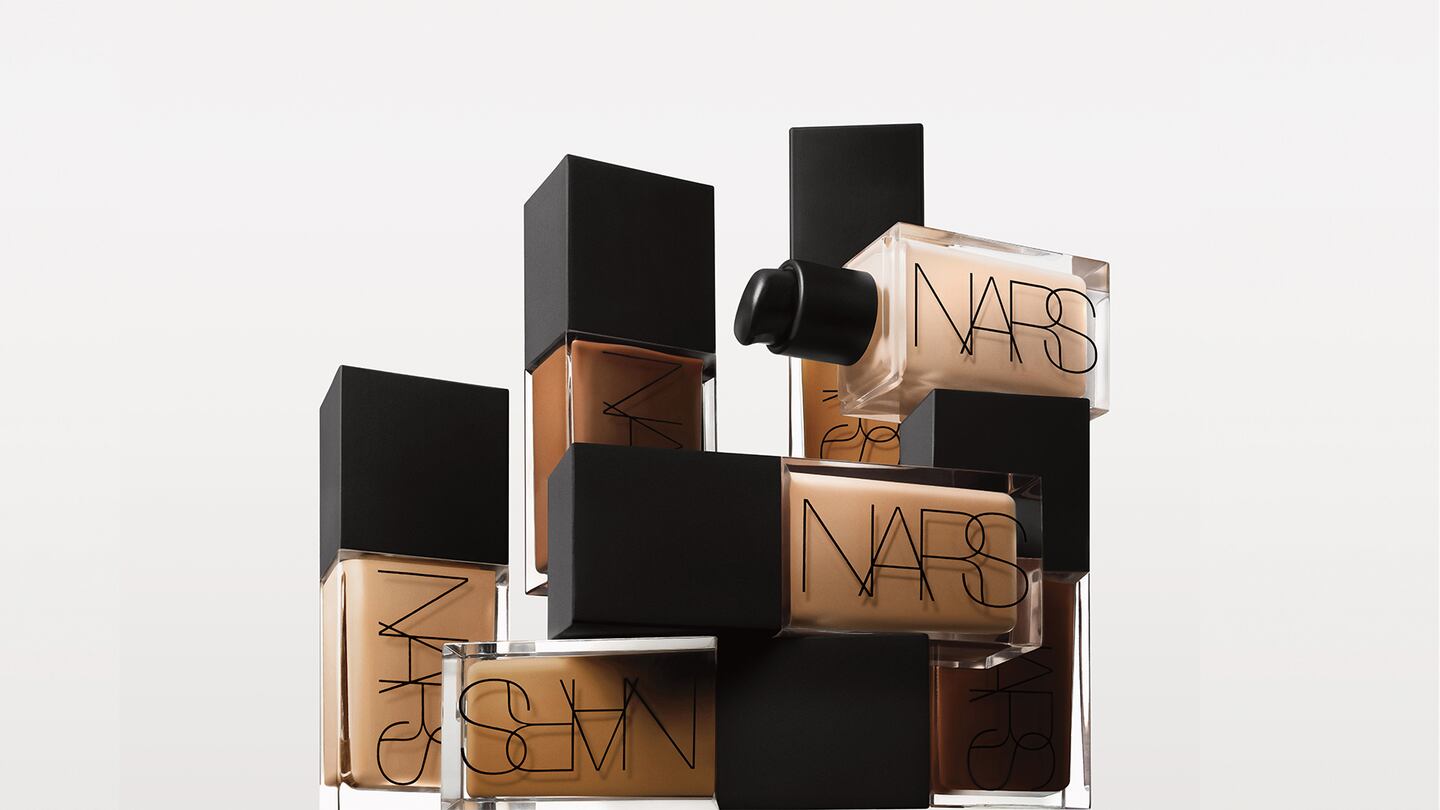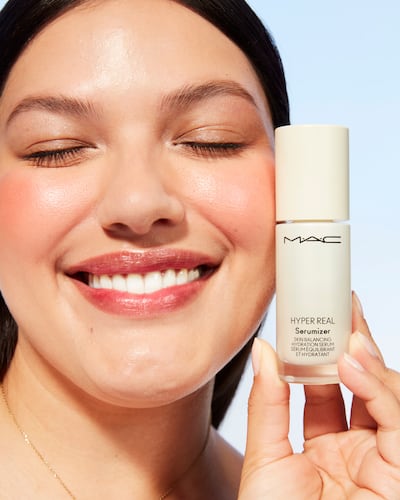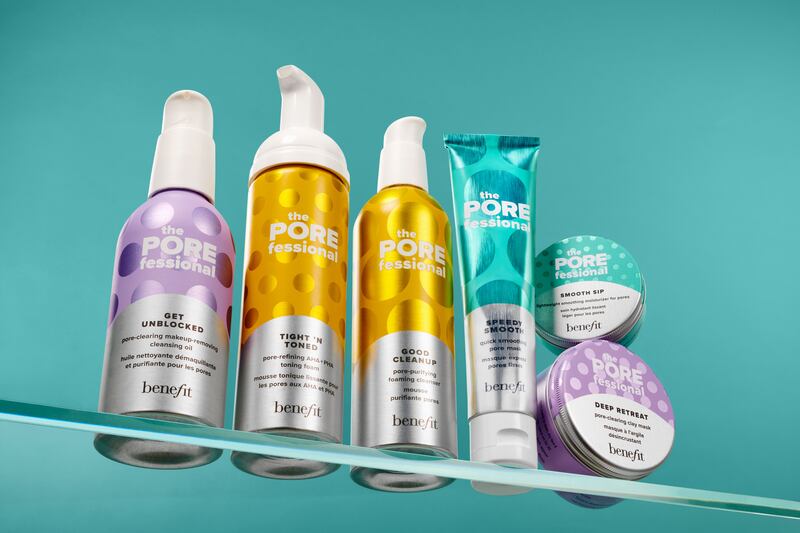
The Business of Fashion
Agenda-setting intelligence, analysis and advice for the global fashion community.

Agenda-setting intelligence, analysis and advice for the global fashion community.

Of the hundreds of new beauty products released last year, a foundation that doubles as skin care generated the most sales.
Nars’ Light Reflecting Foundation was the biggest prestige launch in the US in 2022 by dollars, according to data from The NPD Group.
Julia Sloan, deputy general manager of global marketing at Nars, said 70 percent of the ingredients in the Nars foundation are skin-care ingredients, including cacao peptides, milk thistle, biomimetic oat and Japanese lilyturf. As such, the product was marketed just like skin care. Nars’ website emphasises what the formula is made without (parabens, mineral oil and silicones) and lists the purported benefits of individual ingredients (less redness and a strengthened skin barrier).
“It’s the first time we decided to spike out ingredients in a much stronger way,” Sloan said. The foundation comes in 36 shades, and at $50, costs a lot less than a lot of the high-end skin care it shares shelf space with at Sephora. “We really capitalised on it … to make sure the consumer knew what they were putting on their skin,” she said.
ADVERTISEMENT
So far, the emphasis on skin care is paying off for Nars: it went from being the tenth best-selling prestige makeup brand in the US in 2021 to sixth best-selling in 2022, according to NPD. In less than a year, Light Reflecting Foundation became the sixth best-selling prestige foundation in the US. A source said the foundation’s global sales in 2022 totalled approximately $150 million.
Makeup brands playing in skin and “hybrid” concepts aren’t new, of course. Chantecaille is best known for its selection of tinted moisturisers and foundations infused with skin care, and Bobbi Brown has sold makeup and skin care for decades. Glossier launched with skin care and makeup in 2014 and counts facial cleanser and eyebrow pomade as best-sellers. Charlotte Tilbury has seen runaway success with her Magic Cream, a commercial version of a DIY moisturiser Tilbury would use backstage when prepping models’ faces that was introduced in 2013. According to the brand, a jar of Magic Cream is sold every minute.
Now, the categories are blurring on a larger scale than in years past. A number of indies to LVMH-owned makeup brands are introducing skin care, or something in between the two. (A similar “skinification” is happening in hair care, too.)
Ilia, which sells a foundation serum hybrid that contains mineral SPF and “active levels of skincare ingredients,” launched an eye cream a month ago. In February, The Lip Bar released four skin care products: a cleanser, a serum, a moisturiser and a makeup-removing balm. MAC Cosmetics debuted Hyper Real in January, comprising three items to start, and on Feb. 26, Benefit’s Pore Care skin care will enter Ulta Beauty and Sephora’s website. (The collection launches in Sephora stores in March.)
Success in skin care isn’t guaranteed, especially when founders or brands have shown no previous affinity or expertise in skin (or reportedly have “help” from cosmetic procedures or treatments). Charlotte Tilbury’s Magic Cream, for example, is an incredibly natural fit in the brand’s lineup, given Tilbury’s roots backstage. Others fall short: Kylie Jenner’s Kylie Skin, Kim Kardashian’s SKKN by Kim and Huda Kattan’s Wishful don’t feel authentic to their founders.
For Nars, MAC and Benefit, skin care is meant to be used with makeup.
“[It] enhances your makeup look, which is the space we really wanted to lean heavily into. Everything was designed for that to happen,” Aïda Moudachirou Rebois, global chief marketing officer at MAC Cosmetics, said of skin care during an interview at MAC’s headquarters in SoHo.
The Estée Lauder Companies-owned brand is prioritising the concept of “skin artistry,” or the art of creating a skin look through skin care and makeup. A cleansing oil, $48, is designed to remove a full face of makeup and a “serumizer” acts as a serum and primer pre-makeup application (or on its own, Moudachirou Rebois noted).
ADVERTISEMENT

All of MAC’s skin care comes in pearlised, cream packaging, specifically designed to stand out from the brand’s signature black tubes, compacts and palettes.
Philippe Pinatel, global president at MAC Cosmetics, told me he expects skin care to become 20 percent of the overall business within three years. The company is betting that its robust network of freestanding stores, or around 600 doors globally, will be a powerful consumer acquisition tool. Thousands of MAC-employed makeup artists will be using the skin care before applying foundation — and hopefully convert customers on the spot.
Nars, meanwhile, tapped into an existing brand favourite.
The foundation’s name should sound familiar to many customers. The product is an extension of a pressed Light Reflecting Setting Powder, the best-selling item in the brand’s entire portfolio (which interestingly, is not Orgasm blush). Together, the powder and foundation are the start of a Light Reflecting franchise — similar to Orgasm, originally a blush that now includes lip gloss, eyeshadow and more.
Benefit’s skin care is an extension of a hero product, too: the Porefessional Primer.
Kate Helfrich, senior vice president of product and service innovation at Benefit Cosmetics, said the brand saw an opportunity to extend its “equity in pores.” Previously, the brand offered light and hydrating versions of the 13-year-old primer, as well as a corresponding setting spray.
The new Pore Care Collection includes a pore-purifying cleanser, a pore-refining toning foam, a pore-clearing mask and more that are packaged in aluminium bottles and tubes with polka dots that look like giant pores. The branding is kitschy very Benefit and slightly reminiscent of Bliss in the 2000s.

“We don’t care about being number one in skin care. We care about being number one in pores,” Helfrich said. In other words, Benefit wants to “own the attribute” of the pore with a category-agnostic approach. Additions to the pore collection could include makeup, complexion products, more skin care or other items that could fit in Benefit’s pore universe, she said.
ADVERTISEMENT
Skin care makes sense for MAC and Benefit — but being an expert in colour or contouring doesn’t always extend itself to authority in skin. Crossover success also depends on the type of skin care.
Consumers usually gravitate towards doctor-created labels or brands with a legacy in science, research or patented ingredients that target specific skin concerns, or “serious” skin care. I couldn’t imagine someone coming to MAC for a retinol, but cleansers designed for makeup removal or skin care that doubles as a primer? Sign me up.
 Opens in new window
Opens in new windowBeauty labels hope to court the concert set, looking to Coachella, Stagecoach and Lollapalooza for both brand awareness and trendsetting.
Black founders carry a markedly higher burden when it comes to educating investors on the value and viability of their business ideas — but there is an art and science behind knowing when your brand is ready and what kind of investors will be the best fit.
Landing a retail partnership is often seen as a major milestone for beauty founders — but it brings a bevy of new challenges, from the logistical complexities to setting a marketing budget. Black entrepreneurs, who typically have far less capital to work with, often face tough choices.
The firm has been working on a listing since at least 2022, with previous attempts buffeted by volatile markets.